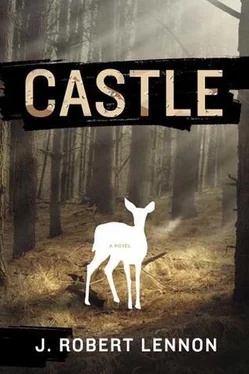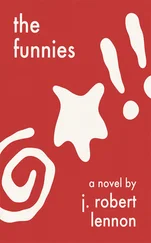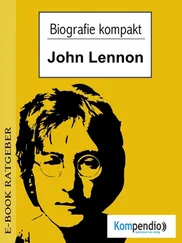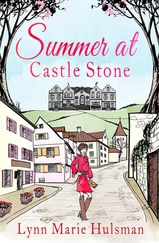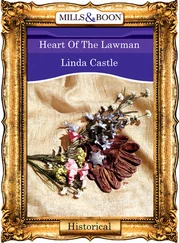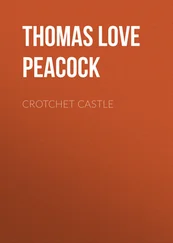The dinner was not to work out as planned, however, because just before Doctor Stiles was to arrive, my sister went missing. My mother called her down from her room, but she was not in her room, and she wasn’t anywhere else in the house, either. Her jacket was gone from the coat rack, and her bicycle from the garage.
My father blamed my mother for letting her leave, and insisted that she get in the car and go find her. But before the issue could be resolved, Professor Stiles appeared on the doorstep.
He was a tall, gaunt man with a long face, a narrow chin, and a round pair of eyeglasses. His clothes were drab and brown and threadbare, and his sparse black hair was snarled at the crest of a high, pale forehead. But he carried with him an air of quiet authority, to which my parents responded by taking his coat and leading him to the sofa, where he was handed a drink.
On the one hand, the Professor looked weak. His skin lacked color, and his arms and legs were thin as a waif’s. But he moved with a precision and assurance that bespoke a great physical dexterity, and his eyes ranged around the room, absorbing, one imagined, every detail. He appeared, in fact, to hold us all in judgment — but what sort of judgment was unclear. He betrayed nothing of his opinions. Such a person had never been in our house before, and I would have been hard pressed to recall when anyone besides ourselves had ever sat on that sofa.
My parents made small talk with Professor Stiles, and he joined the conversation with ease. But his eyes, I couldn’t help but notice, fell upon me time and time again. I said nothing, but I felt that I was expected to, and several times I almost opened my mouth to speak. I resisted, however, afraid of how I might sound. I had already developed a reputation at school as a quiet, studious pupil, not especially socially adept, and I wanted such a man to be impressed by me, or at least to approve. Ultimately I considered it best, then, not to speak at all.
In time, the group moved to the dining room, where a place had been set for my sister. As the meal began, Doctor Stiles glanced at the empty plate and asked, “And so your young lady will not be available this evening?”
My mother reddened, and my father grumbled something about my mother’s inability to keep her in line, but Professor Stiles waved off the question with a graceful, leaflike hand. “It is of no consequence,” he said.
Awkwardly, my parents returned to small talk, and we ate. Professor Stiles complimented the food, and my mother blushed again, this time with pleasure — I could not recall my father ever having complimented her for anything. It was not in his nature. But, seeing that she was under the Doctor’s sway, my father said, “Avery, tell her about your work. Tell her what you’ve been doing.”
“Ah,” Professor Stiles said, setting down his knife and fork, and addressing my mother with disarming directness. “I am interested in modifying behavior, particularly in children, through a form of conditioning that I have devised.”
“Oh!” said my mother, and though her tone was bright, I could tell that it was a put-on, that she didn’t like this visitor and wished he would finish his meal and go away. My father must have sensed this, for he scowled slightly at the tablecloth and gripped his fork a little tighter.
“Forgive me for being obscure, Mrs. Loesch,” the Professor went on. “It is difficult to distill my years of research into a simple explanation, even for a colleague. I’ll put it this way.” He straightened in his chair, lifted his napkin to his face, and daubed at the corner of his mouth. Then he replaced the napkin on his lap, drew breath, and continued. “You have noticed, I should imagine, the social unrest that has overtaken our cities of late, and the reactionary culture that has sprung up in protest of the war.”
“Of course,” my mother replied briskly.
Professor Stiles acknowledged her with a nod. “And so you are likely familiar, as well, with our failures in that war, the losses our armed forces have suffered, and the despair that has spread among our soldiers there.” He did not wait for an answer, but merely went on. “It is my feeling that we have civilized our own humanness out of existence. We are too affluent, and too soft, and many of our natural instincts have atrophied. My research means to explore how the human mind reacts when its comforts have been stripped away. I intend to recover those human skills that we have lost, to create a better soldier, and perhaps more importantly, a better citizen.”
“I see,” my mother said.
The smile that Professor Stiles offered in response was a sad one. He shook his head, turned to me, and winked. Then he reached into the pocket of his sport coat, lunged to his feet, and grabbed me from behind, pinning me to my chair. His arm was crooked around my neck; the tweed was rough against my throat. I felt something being pressed to my skull, just above the right ear.
My mouth was full of food, but I was unable to swallow. I heard my mother scream.
“I’m going to murder your child, Mrs. Loesch,” Professor Stiles said, his voice loud but calm. “What are you going to do?”
She screamed again and again, her hands twisting her napkin, her body curling further and further in on itself, shrinking like a piece of paper thrown into a fire.
I had not yet had time to be frightened — I felt only shock and confusion. I looked to my father for help and was even more baffled to find him sitting back, his arms crossed over his chest, looking on with interest, even amusement. It was clear he was not comfortable with the situation — his mouth was taut, and the veins stood out above his ear — but neither was he frightened, or even angry. Meanwhile, my mother continued to scream.
“I’m going to kill Eric, Mrs. Loesch,” he said. “What will you do? How will you save your son?”
“Please!” she wailed, rocking in her chair. She turned to my father. “Please! Brian! Please!”
“Mrs. Loesch!” Professor Stiles shouted.
“Oh, please!”
“Mrs. Loesch, look at me!”
I felt the object press harder into my scalp, and I tried to lean away. But the Professor’s arm held me tight. I struggled to swallow, failed, and coughed horribly, spitting the food across the table. My father frowned.
“Look at me, Mrs. Loesch! If you want your son to live, look at me!”
I believe that lifting her head was the most difficult thing my mother had ever done. Slowly, as though she were terribly old, she turned to face the end of the table where the Professor stood over me; she gazed into my eyes and I recognized that something in her had toppled over and shattered. Her cheeks were streaked with tears, and wrinkles fanned out from the corners of her mouth. A bubble appeared at a nostril, grew, and popped.
“Look at me, please, Mrs. Loesch.”
With a final, desperate effort, her eyes rolled up to meet his.
“Do you want me to kill your son, Mrs. Loesch?”
“No,” my mother whispered.
“Mrs. Loesch, I want you to look at my hand.”
She blinked, and blankly gazed at his left hand, which rested on my shoulder, holding me to the chair with casual, implacable force. I could feel the long fingers there, pressing painfully into my flesh.
“No, Mrs. Loesch, the other hand.”
Her jaw trembling, she shifted her gaze to the Professor’s other hand, the one holding the weapon to my head.
“Mrs. Loesch, I want you to tell me what I have pressed to Eric’s head.”
Fresh tears began to run down my mother’s face. “A g—,” she stammered, “a g-g- gun. ”
“Mrs. Loesch. Cybele. No. What do I have pressed to Eric’s head? ”
A curious transition played itself out on my mother’s features. Though she was wracked by fear and despair, she must have found within herself some well of resolve, for she focused her glassy pink gaze and concentrated on the Professor’s weapon. After a moment, her eyes flew open, and her head jerked back an inch; the first stirrings of anger were visible at the corners of her mouth.
Читать дальше
